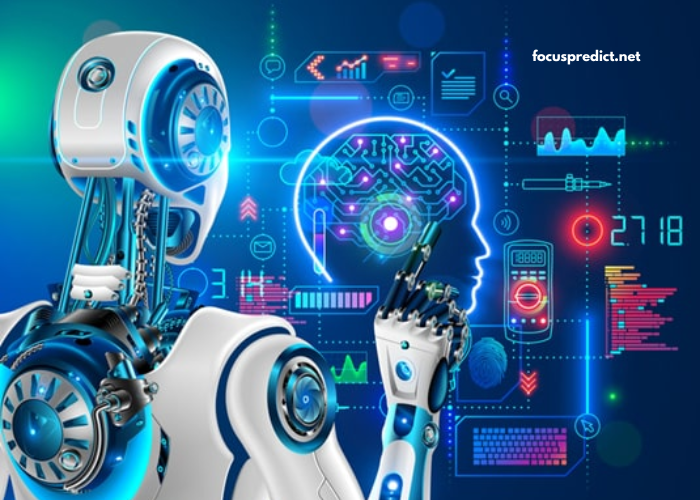The world is witnessing a technological revolution that is transforming every aspect of human life. From how we work and communicate to how we heal and travel, innovations in technology are redefining the boundaries of possibility. In this article, we explore the most impactful tech innovations that are poised to reshape the future across industries, societies, and our everyday lives.
The Rise of Artificial Intelligence and Machine Learning
Artificial Intelligence (AI) and Machine Learning (ML) are no longer futuristic buzzwords. They are active forces revolutionizing industries.
AI-Powered Decision Making
AI systems now analyze massive datasets faster and more accurately than humans. Businesses use AI to make strategic decisions, predict trends, and personalize customer experiences. From finance to healthcare, AI’s analytical power is becoming indispensable.
Automation and Robotics
Robotics and AI are working hand-in-hand to automate processes. Whether it’s robotic arms in factories or AI-driven chatbots handling customer service, automation is increasing productivity and reducing operational costs.
Quantum Computing: Supercharging Data Processing
Quantum computing is expected to bring about the next major leap in computational power.
Beyond Classical Limitations
Traditional computers use binary systems, while quantum computers use qubits, allowing them to process complex calculations at unprecedented speeds. This could revolutionize drug discovery, cryptography, and complex system modeling.
Industries Set to Benefit
Sectors such as pharmaceuticals, logistics, financial services, and materials science are investing heavily in quantum research. This transformative technology promises breakthroughs that are currently unattainable using classical systems.
5G and Beyond: The Next Internet Revolution
5G technology is laying the groundwork for a hyper-connected future.
Speed and Connectivity
5G offers data speeds up to 100 times faster than 4G. This advancement enables real-time communication, lower latency, and seamless connectivity, empowering everything from smart cities to autonomous vehicles.
Enabling the Internet of Things (IoT)
With enhanced bandwidth, 5G supports billions of interconnected devices. From smart homes to industrial IoT applications, this network innovation is key to building truly intelligent environments.
Extended Reality (XR): A New Dimension of Interaction
Extended Reality, encompassing Virtual Reality (VR), Augmented Reality (AR), and Mixed Reality (MR), is reshaping how we interact with digital content.
Immersive Learning and Training
In education and corporate training, XR is creating immersive environments for interactive learning. Medical students, pilots, and engineers now train in simulated conditions that closely mimic real-world challenges.
Virtual Collaboration and Entertainment
With AR and VR, businesses are hosting virtual meetings, product launches, and events. In entertainment, XR is transforming gaming, films, and live concerts into interactive experiences.
Blockchain Technology: Redefining Trust and Transparency
Blockchain is moving beyond cryptocurrency to bring transparency, security, and efficiency across sectors.
Smart Contracts and Decentralized Applications
Smart contracts automate transactions based on predefined rules. These self-executing codes are revolutionizing industries like real estate, insurance, and supply chain management by reducing fraud and intermediaries.
Transparent and Secure Data Sharing
Blockchain’s immutable ledger ensures data integrity. Healthcare, finance, and government institutions are leveraging it for secure identity management and transparent data handling.
Biotechnology and Genomics: Engineering the Future of Health
The intersection of biology and technology is driving innovations that are revolutionizing healthcare.
Personalized Medicine and Genomic Sequencing
Advancements in genomics enable personalized treatments tailored to an individual’s genetic makeup. Diseases can now be predicted, prevented, or treated more effectively with genome-based diagnostics.
CRISPR and Genetic Editing
CRISPR technology allows scientists to modify DNA with high precision. It holds potential for treating genetic disorders, improving crop resilience, and even combating aging.
Renewable Energy Innovations: Powering a Sustainable Future
As the global demand for clean energy grows, innovations in renewables are becoming vital.
Solar and Wind Technology Advancements
Modern solar panels and wind turbines are more efficient, cost-effective, and accessible than ever. Breakthroughs in material science are enhancing energy conversion rates and storage capabilities.
Smart Grids and Energy Storage
Next-gen batteries and AI-powered smart grids are revolutionizing how we store and distribute energy. These systems balance supply and demand, reduce energy waste, and integrate renewable sources more effectively.
Autonomous Vehicles and Smart Transportation
Technology is reshaping transportation through autonomy, electrification, and connectivity.
Self-Driving Cars and Trucks
Autonomous vehicles use AI, LiDAR, and radar technologies to navigate without human intervention. Companies like Tesla, Waymo, and Uber are pushing boundaries in self-driving tech, aiming to reduce accidents and traffic congestion.
Urban Air Mobility
Flying taxis and drones are being developed for passenger and cargo transport. Urban air mobility solutions promise to alleviate city traffic and offer faster travel alternatives in the near future.
Space Technology: Opening New Frontiers
The final frontier is becoming more accessible, thanks to private space companies and advanced tech.
Commercial Space Exploration
Companies like SpaceX, Blue Origin, and Virgin Galactic are leading the charge in making space tourism and colonization feasible. Innovations in reusable rockets are cutting costs and making frequent launches more sustainable.
Satellite Internet and Global Connectivity
Low Earth orbit satellites are providing high-speed internet to remote and underserved areas. Projects like Starlink aim to create a truly global internet infrastructure.
Cybersecurity: Safeguarding the Digital World
With increasing digitization, robust cybersecurity is more crucial than ever.
AI in Cyber Defense
AI and ML algorithms detect and respond to threats faster than traditional systems. They analyze behavior patterns and anomalies in real-time to preempt cyber-attacks.
Zero Trust Architecture
A “never trust, always verify” approach is becoming the new standard. Zero Trust architecture minimizes access privileges and continuously authenticates users, reducing the risk of breaches.
Smart Cities: Building the Infrastructure of Tomorrow
Smart city technologies are improving urban living through data-driven insights.
Intelligent Infrastructure
Smart cities use sensors, data analytics, and AI to optimize traffic flow, waste management, energy usage, and public safety. These technologies contribute to sustainability and better quality of life.
Citizen Engagement and E-Governance
Apps and digital platforms allow citizens to interact with government services more efficiently. From paying bills to reporting issues, technology empowers active civic participation.
Human Augmentation and Brain-Computer Interfaces
The line between human capability and technology is blurring.
Wearable and Implantable Tech
Smart wearables like fitness trackers, AR glasses, and neural implants enhance physical and cognitive abilities. These devices monitor health, assist disabled users, and even augment reality in real-time.
Brain-Machine Communication
Companies like Neuralink are developing brain-computer interfaces that allow direct communication between the brain and external devices. This could revolutionize how we control machines, treat neurological conditions, and interact with digital content.
Edge Computing: Bringing Data Processing Closer to the Source
With the explosion of IoT devices, edge computing is becoming essential.
Real-Time Processing and Low Latency
Edge computing reduces latency by processing data near the source rather than relying on distant cloud servers. It is crucial for time-sensitive applications like autonomous vehicles and industrial automation.
Enhanced Privacy and Security
By minimizing data transfer, edge computing reduces vulnerability to breaches and supports compliance with privacy regulations like GDPR and HIPAA.
Metaverse: The Next Digital Universe
The Metaverse is a collective virtual space, merging physical and digital realities.
Digital Economies and Virtual Assets
The Metaverse allows users to work, socialize, and transact using digital currencies and NFTs (non-fungible tokens). It creates new opportunities for creators, brands, and businesses.
Hybrid Workspaces and Digital Identity
Remote work is evolving into immersive collaboration through VR-powered environments. The Metaverse offers persistent, customizable avatars and virtual offices, redefining workplace norms.
Conclusion: Embracing the Future with Purpose
Technology is not just advancing — it’s accelerating. These innovations have the power to solve humanity’s greatest challenges, from disease and poverty to climate change and inequality. However, with great power comes great responsibility.
As we integrate these technologies into our lives, ethical considerations, privacy, accessibility, and inclusivity must remain central. Governments, businesses, and individuals alike must collaborate to ensure these advancements benefit all of society.
The future is not something we step into — it’s something we help shape. With continuous innovation and a commitment to purposeful progress, we can create a future that is smarter, safer, and more sustainable.




